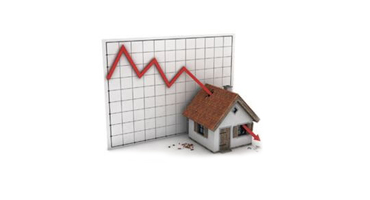Author’s note: This article is condensed from a longer article published in CAI’s Common Ground magazine (Jan/Feb 2017), and is a summary of Robert’s presentation at the CAI National Conference in Las Vegas, NV on May 4, 2017
After 30 years in this industry educating other professionals, clients, and prospects how to make wise decisions with respect to Reserves, I’m considering a different, age-old strategy: Change behavior by providing a financial incentive!
While it’s hard to dispute the adage, “In real estate, only three things matter: location, location, and location” there are actions a community association board can and should take to enhance the value of its owners’ homes. For most homeowners, housing is their largest single asset. So when the board and owners focus on this end result (let’s improve property values!), it creates a strong and unifying incentive that draws the community forward. A board that acts to maximize home values makes a large and lasting difference in the financial best interests of its members.
So what can a board do?
Budget accurately & honestly (Operating and Reserves)
Assess the funds necessary to maximize curb appeal, minimize or eliminate (costly) deferred maintenance, and thrive. A dated lobby or a regularly broken entry gate leaks more money than a broken pipe. Fortunately, the result of slightly higher assessments (hundreds of dollars per year) is rewarded with thousands of dollars of improved home value. But more on that later.
Avoid special assessments
They are disruptive and divisive, and in most cases are predictable years in advance. Real Estate agents familiar with your neighborhood know what goes on in your association, and they discourage strong sales offers for homes in associations with a history of special assessments.
Manage well (professionally and transparently)
The association belongs to the owners, not to the board or management. Create a smooth, well-oiled machine. Publish meeting agendas, minutes, budgets, newsletters, etc. Schedule social events and create a culture of community, with active volunteers being trained up to be board members, all contributing to maximized home values and the improved future of the association. Employ a credentialed manager who helps move the association forward, not just a professional “babysitter”. Treat Real Estate agents as your sales representatives, not adversaries. All of these things take time or money, but a healthy, well-run community is inviting. Buyers will pay more to join such a welcoming community.
Hire knowledgeable business partners
Remember that your goal is not to save a few bucks here or there, your goal is to raise home values by thousands of dollars. Use business partners and vendors who are experts in their field, familiar with community associations, and who are appropriately licensed or credentialed. Think of your association as a team. Only hire “varsity” players… all-stars who can contribute to your success.
Much of the above is just general “good advice”, but we’ve been able to conclusively measure the influence of one specific aspect of association behavior on home values. In a controlled study recently completed, we found that home values in associations with well funded Reserves (above 70% Funded) averaged 12.6% higher than similar homes in associations with poorly funded Reserves (0-30% Funded). Well-funded Reserves mean maximized curb appeal instead of ugly and budget-draining deferred maintenance and a history of special assessments. “Strong Reserves” typically exist in associations that are managed well. The evidence shows that buyers are willing to pay more for homes in a well-run and financially stable association. It may cost an extra $20 to $60/mo in homeowner assessments ($240 to $720 per year), but it leads to increased home values. A 12.6% increase in a $325,000 condo is a sweet $40,950. What a tremendous return on investment from an owner’s additional $240 to $720 per year. Now that’s a nice financial incentive!


